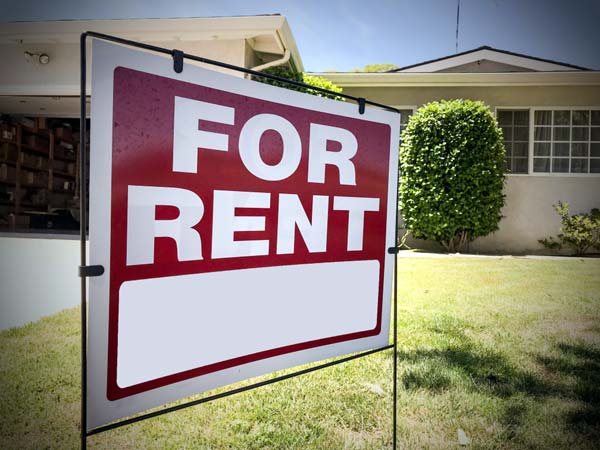Buying a property is one of the most important financial decisions you can make. Your home becomes a key source of your wealth. Being a long-distance landlord can be a successful business, but it is not a decision you make lightly. It necessitates significant planning and preparation to ensure your success. In this piece, we’ll look at five signs that you could be ready for this investing method.

Living close to your rental investment home may not be possible for a variety of reasons. While living nearby makes things easier, being a long-distance landlord can still reap the benefits of investing in real estate. Modern technology and services enable investors to buy property anywhere to get the most out of their portfolios.
Whether looking at investment properties in another city or relocating and renting out your present house, recognizing the indicators that you’re ready for this endeavor is important. If you are a seasoned investor or a novice in the industry, this article is for you. Continue reading below as this post discusses the top five signs that suggest you are ready to become a long-distance landlord.
Top 5 Signs You Are Ready to Become a Long-Distance Landlord
1. Financial Stability
Financial stability is vital for long-distance landlord success. A sound financial foundation is the first indicator of preparation. This means you have the money to invest in a property other than your primary residence. It would help if you were financially prepared for the property purchase and ongoing expenses such as property care, repairs, and unforeseen emergencies. If your investment is in this area, investors can connect with professional property management services in Northern Virginia to assist in managing their long-distance rental.
Enough cash guarantees you can handle mortgage payments and other expenses even if your rental income changes. Being financially stable also allows you to weather vacancies or unforeseen expenses without sacrificing property management quality, giving you confidence in your long-distance landlord journey.
2. Effective Property Management
You must have the ability to manage rental properties remotely. You have a dependable property management system that ensures day-to-day operations function smoothly. This could include hiring a professional property management company or utilizing digital tools for regular rent collection, maintenance, and tenant communication.
Your ability to supervise these essential variables from a distance proves your readiness to become a long-distance landlord, ensuring that your investment remains profitable and your renters are well-cared for.
3. Local Market Knowledge
For individuals considering long-distance landlords, having a thorough understanding of the local real estate market is essential. If you have this critical knowledge, it strongly indicates that you are ready for the task. Local market expertise means you can accurately evaluate property values, rental rates, and emerging trends. You understand the neighborhoods, their attraction to potential tenants, and any regulatory nuances.
This knowledge enables you to make informed property selection, pricing, and management decisions. Knowing the local market ensures that your investments are strategically positioned for success and reduces the risks associated with long-distance property ownership.
4. Commitment to Communication
When considering long-distance landlords, a solid commitment to communication is essential. It’s an important indicator of readiness. Effective communication lets you handle tenant complaints quickly and maintain a healthy landlord-tenant relationship despite geographical distance. It entails establishing clear communication lines, responding quickly to inquiries and maintenance requests, and being available for emergencies.
Using digital tools and having a reliable point of contact, such as a property manager or trusted local representative, demonstrates your commitment to maintaining open lines of communication. Maintaining a rental property from a distance without this dedication might result in tenant unhappiness and potential problems.
5. Tech-savvy Approach
Being technologically proficient is a crucial indicator of your readiness to be a long-distance landlord. The management of properties from a distance in today’s digital age primarily depends on technology. If you feel at ease, you can use applications, programs, and online platforms for rent collection, managing property maintenance, and conducting remote property inspections.
Utilizing technology simplifies processes and guarantees you can stay in touch and solve problems quickly, even when geographically separated. Your capacity to adjust to long-distance property management’s contemporary needs reflects your willingness to use digital technologies, making you a more prosperous and efficient landlord.
Become a Long Distance Landlord: Benefits of Being a Long-Distance Landlord

1. Expanded Investment Opportunities
The advantages of becoming a long-distance landlord are numerous, with increased investment prospects being one of the most alluring. When you aren’t limited to the homes in your neighborhood, you can access real estate markets that provide better returns on your investment. Thanks to this geographic flexibility, you can diversify your property portfolio across regions with various growth potentials and levels of economic stability.
You can also target markets with strong rental demand and lower acquisition costs. This diversification can offset the risks associated with the economic changes of a single area.
Furthermore, long-distance landlord enables you to use technology for remote property management, decreasing the necessity for physical presence. As a result, you may manage many properties in different places easily, maximizing your potential income. Being a long-distance landlord is an appealing choice for savvy investors due to the potential to explore and capitalize on numerous real estate markets.
2. Tax Deductions
There are various advantages to becoming a long-distance landlord, including significant tax deductions. As a long-distance landlord, you can deduct some expenses linked to your rental property. These deductions may include mortgage interest, insurance premiums, maintenance and repair costs, property management fees, property taxes, and travel expenses for property-related visits.
Furthermore, depreciation on the property’s worth might bring further tax benefits. Although meticulous record-keeping and compliance with tax rules are required, these deductions can dramatically reduce your overall tax bill, making long-distance real estate purchases more financially appealing and gratifying. It is best to consult with a tax professional to maximize these benefits.
3. Regular Cash Flow
One of the main advantages of becoming a long-distance landlord is the potential for consistent cash flow. You diversify your revenue streams when you buy rental homes in several locations. As a result, even if one of your properties experiences a brief vacancy or maintenance needs, the income from your other properties can help cover these expenses, ensuring a more stable cash flow.
Additionally, you can take advantage of rental markets that could be more profitable, boosting your rental income. You may remotely manage your investments with appropriate property management and the help of technology, enjoying the financial security of consistent rental income from an array of properties.
Conclusion
The first step towards becoming a long-distance landlord is a considerable step in real estate investment. The top five indicators discussed in this article serve as critical readiness indicators. Financial stability, effective property management, local market knowledge, a tech-savvy strategy, and a commitment to communication are all required for your investment to succeed.
You may make informed decisions and position yourself for success as a long-distance landlord by assessing your readiness against these indicators. With the proper foundation and mindset, you may take advantage of the benefits of property investment across locations, diversify your income, and eventually reap the benefits of this exciting and profitable endeavor.



